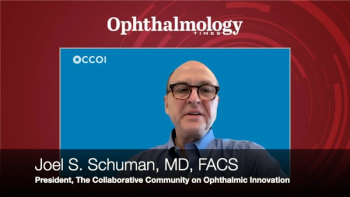
Surgery developed by ophthalmologist at Dean McGee Eye Institute proves its effectiveness

Mahmoud A. Khaimi, MD, developed a minimally invasive glaucoma surgery known as ab-interno canaloplasty as a treatment option between topical therapies and invasive surgery. The technique continues to prove its value.
As glaucoma specialists look for innovative ways to treat patients, a technique developed by Mahmoud A. Khaimi, MD, at the University of Oklahoma’s Dean McGee Eye Institute is proving its effectiveness.
Glaucoma is a leading cause of blindness worldwide and is characterized by an increase of IOP within the eye, which ultimately can damage the optic nerve and lead to loss of vision. Traditional glaucoma treatments consists of topical medications followed by laser treatment or invasive surgery should the medication regimen prove ineffective.
In 2015, Dr. Khaimi, an ophthalmologist at the Dean McGee Eye Institute (DMEI), pioneered a minimally invasive glaucoma surgery (MIGS) known as ab-interno canaloplasty (ABiC) as a treatment option between topical therapies and invasive surgery.
According to a DMEI blog, this procedure uses Nova Eye Medical’s iTrack catheter to open up the natural outflow channels of the eye to restore normal aqueous flow and lower IOP, without damaging tissue or leaving behind a stent or shunt.
According to the blog, the results of a study recently published in Therapeutic Advances in Ophthalmology confirm the long-term effectiveness of the iTrack procedure in reducing dependence on topical antiglaucoma medications and maintaining acceptable IOP in patients with primary open-angle glaucoma.
In this study conducted at DMEI, participating patients who underwent the iTrack surgery saw a 61% decrease in the mean number of medications used 36 months after the surgery, with 56% of eyes being medication free, and an acceptable IOP for iTrack patients was maintained at the 12-, 24-, and 36-month follow-up visits.
According to Dr. Khaimi, glaucoma medication use may seem innocuous in the short term but there are significant challenges associated with long-term, chronic use of medications, including an increased risk of ocular surface disease.
Newsletter
Don’t miss out—get Ophthalmology Times updates on the latest clinical advancements and expert interviews, straight to your inbox.





























